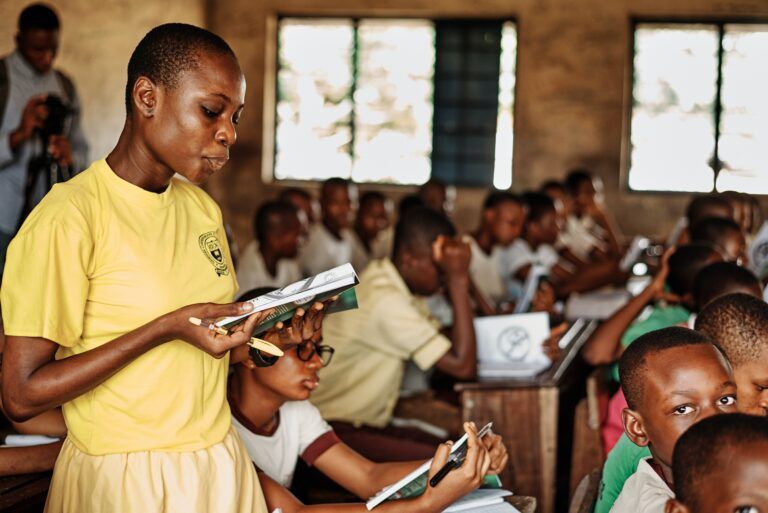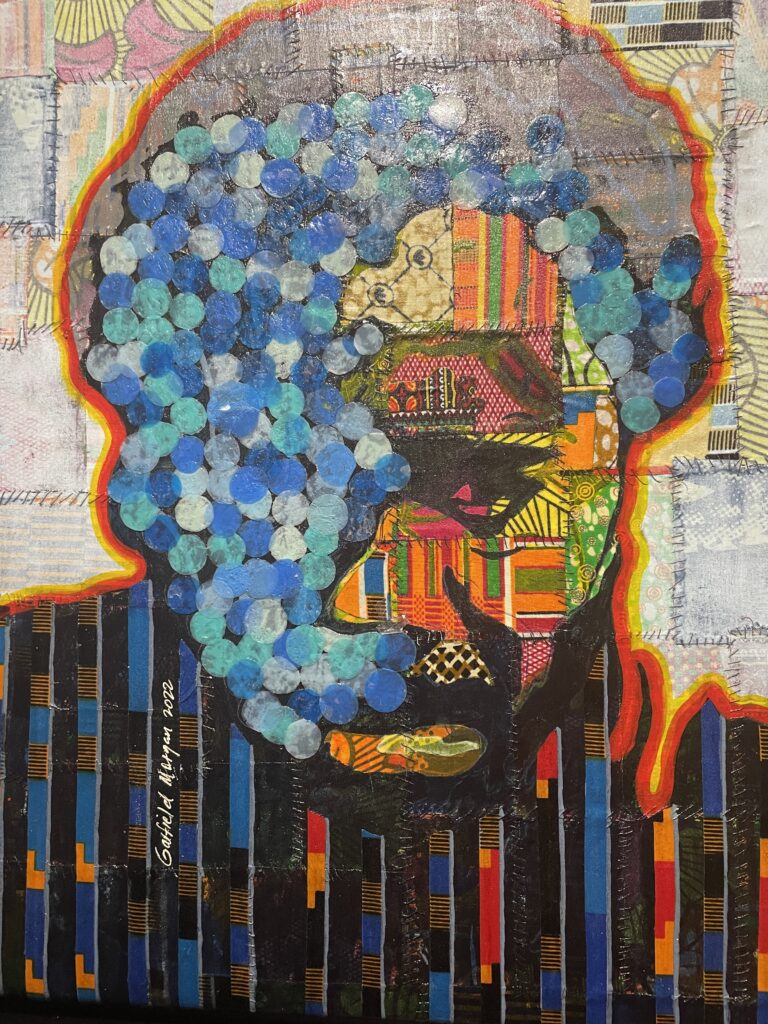Students’ language in West Africa

These days, it is very common to hear that the language competence of high school or university students is falling, drastically. Examination bodies like WAEC (West African Examinations Council) and language instructors regularly lament that fact. This falling aptitude level in languages is not limited to a single country, since both English-speaking West Africa and French speakers are affected equally.
English in Ghanaian schools and the Nigerian influence
In an attempt to grasp the root of the low proficiency levels of Ghanaian high school and university students, I engaged in discussion with English instructors and lecturers. The following factors surfaced. One of the main reasons proposed the poor quality of the English spoken by students in Ghana is the prestige surrounding the Nigerian film industry, or Nollywood, in Ghanaian society. Most Ghanaians believe that Nollywood produces movies of a higher quality. The intrigue is more exciting, the scenery more robustly constructed, and the set design more attractive. Ghallywood (Ghanaian film industry), on the other hand, simply churns out “recorded drama” with no level of artistic sophistication. This simply captures how simplistic Ghanaian cinema is, in the eyes of some Ghanaians. It is, therefore, not surprising to see casts that bring together Ghanaian and Nigerian film stars and, sometimes, the drive towards excellence involves South Africa where many of such cinematographic collaborations take place, since the infrastructures of that country add to the quality of the final product, which most West African fans enjoy.
That love for Nigerian movies, according to one instructor, contributes to the lowering of students’ facility with the English language. She contends that Ghanaian students, as well as adults, patronize Nigerian movies to such an extent that their language, especially the English of the youth and the students, demonstrates the obvious influence of the language of Nollywood – Nigerian pidgin or standard English. One very often hears expressions like “Abi” meaning “right, or isn’t it?”, “all protocols observed” (an expression which many Ghanaians believe was borrowed from Nigerians, “Naija babe” for “Nigerian girlfriend” and many more. She is of the view that these borrowings contribute to the deterioration of the spoken English among Ghanaian students. My opinion is that this observation is limited and does not consider other factors like the home environment, the media, the church, the school that might also be affecting the English of the youngsters more than movies, Nollywood, in this case. Some instructors notice that both high school and university students do not speak pidgain anymore simply because the ‘speach culture’ in our society is declining. Instead of conversing in pidgin or ‘standard English’ the youth are more absorbed by social media, and platforms that require just short or coded messages which have now replaced SMS messages. As a result, one seldomly hears pidgin in the university corridors or school yards.
Why is written English suffering?
“Students do not bother to check when they are writing” is the submission of an instructor who adds that the habit of communicating in short messages makes students more reluctant to search for the correct spelling or usage of words. That remark suggests a certain level of “laziness” in the youth who are preoccupied only with the “comprehension” by the receiver. That instructor does not understand why someone of her age can take the trouble to check words while young people do not care about that at all. Gender has a place in the debate when it is noticed that female students, most of the time, do not speak pidgin (neither the Ghanian nor the Nigerian one). Research shows that females, in general, tend to practise the correct language usage. My interlocutor told me that some female students master both ‘standard English’ and pidgin.
French in the hands of the youth in Francophone West Africa
A similar discussion with Francophone students revealed the following points. Poor grammar is the major issue students of French in schools and universities face. In general, French grammar is more complex, with more rules which are constantly increasing. Additionally, French has an “Academy” or an academic body which is the watchdog of the language (unlike English which is more liberal and tolerates global English or world English). These factors certainly contribute to the linguistic anxiety of young Francophones. The co-existence of a sacrosanct grammar in an era of liberty with social media creates a very complicated situation, where strictness and freedom rub shoulders. According to the African students and instructors of French, with whom I spoke, that combination reduces the aptitude levels of the students who suddenly find themselves trapped in an environment in which they cannot make a single correct sentence in French, and that is explained by the pedagogy in the classroom, and the lack of regular training for French language instructors. As a result, instructors are not able to teach learners. The same interviewees mentioned that those who yearn to be proficient in French wish to be trained by experienced trainers. They add that, except for Senegal, all French-speaking countries in West Africa face that tragedy. The distinct and enviable case of Senegal, to them, is justified by the fact that very early, that country made education (and French Language of course) a priority by seeing to it that demonstrations that interrupt academic programmes do not occur. “We rarely hear of a demonstration of lecturers/instructors in Senegal, certainly not because unions are corrupt but because education is perceived as a field to be rescued at all cost”. That could partly be the consequence of the fact that Senegal was the location of Western scholarship in West Africa. The first and best high schools, professional schools and universities were erected in cities like Saint Louis and Dakar where most of the first graduates of the subregion were trained. Many of them, coincidentally, became political leaders or presidents in their countries like the Ivorian Houphouёt-Boigny and others. What should not be forgotten in the debate of the fate of the French Language in West Africa is that the whole subregion speaks only “standard French” (at least grammar-wise) except Côte d’Ivoire where broken French or the French equivalent of pidgin exists and is derogatorily called français petit nègre [the little N’s French] or nouchi. That might explain the little influence of pidgin unlike the situation in English-Speaking West Africa, but the common factor is a vertiginous decline of the levels of proficiency of the students of French and English.
Moussa Traoré is Associate Professor at the Department of English of the University of Cape Coast, Ghana.






